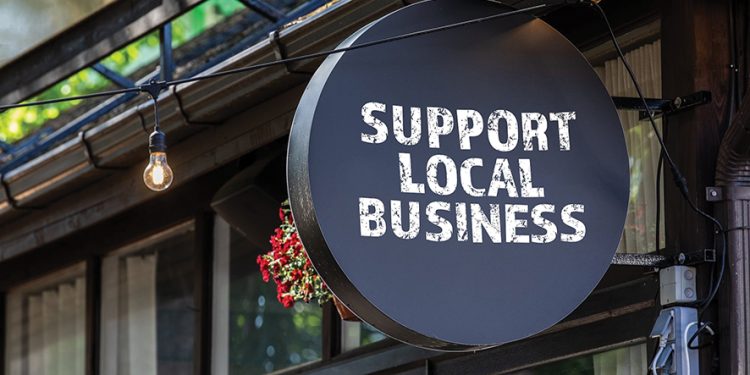There is a lot of talk out there about small business being a big opportunity to make a living. Size and character of course vary from country to country. For instance, what they call a small business in America and China might qualify here in Sakartvelo as a massive enterprise. Using a slight ballpark, the average figures, as they say, might be from one to two hundred employees and from five to ten million dollars in annual revenue. For us, these numbers are huge. What I call a small business in our little developing country might be ten times less than the above quoted figures. But let’s assume that the figures don’t matter much and instead “small business” alludes to the content of a business, its feasible sustainability, and the technicalities of its development.
The local grapevine has it that Georgia is reckoned to be one of the most attractive end-points for foreign companies and angel investors, welcomed by the country’s readiness for doing efficacious business, noticeably abridged and streamlined administrative rules and regulations, reasonably low tax obligations, bureaucracy that does not want to be in the way and is totally allergic to corruption, and of course the relevantly healthy infrastructure and professionally assessed qualified workforce which, to our greatest chagrin, do not always live up to the expectations of those hopeful deep-pockets, be they from east, west, south or north of the globe.
Even on the widely-favored and seemingly business-ready Georgian soil, the privately owned small corporations, partnerships and sole proprietorships, targeted for financial ventures by those who are interested in the gainful capitalization of our local small enterprises, might come across hindrances like the language barrier, the number of permissions and licenses (though these have become far easier to acquire than before), and the indigenous culture and nerve.
Georgia, having a notably valuable and helpful-for-business-development geographical position, and enjoying a two to three billion consumer market, has already managed to earn itself a reputation as a western-type nation of stable economic prospect, based on a liberal and free market. Oriented on a pragmatic foreign and economic governmental policy, it is poised to keep up the current moderate commercial success, and even to enhance it over the next few years, if, of course, stable peace is maintained.

Small business must flourish in the country, and have solid revenues, and the potentially levied taxes can tremendously contribute to this cherished end. There must be tens of thousands of old and newly-registered small businesses in Georgia- though it’s difficult to say exactly how many of them are effectively remunerative. Taxed incomes are expected from them, but with all natural and acquired parameters, level of education, labor-force qualification and the level of the nation’s involvement in the international business environment, one could easily predict that small business development and the scope of its proliferation should without fail be one of the strongest vectors with which to raise the standard of living in the country.
Georgia, enjoying a 2-3 bln consumer market, has already managed to earn itself a reputation as a western-type nation of stable economic prospect, based on a liberal and free market
In principle, the management of a sizable corporation and the running of a small business technically belong in the same category of procedural endeavor. The difference is only in the size of the end product and financial outcome. The owner’s or operator’s responsibility before the society they operate in, and their accountability before law enforcement, is equal, though the challenges they face may differ. After all, a big business has to provide for a very serious number of employees, whereas a small one takes care of just a few, whose salaries or health insurance demand less. Small business is like a small family, within which communication is more relaxed and straightforward, and the management-level staff are accessible in easier fashion, which means a lot in pushing forward an employee’s everyday demands and goals. In small business, the management hierarchy is less intimidating and more agreeable at the level of regular human relationships. All this generates better labor results and extremely favorable attitudes in the collective labor environment, usually yielding higher labor productivity, which for its part, creates an ideal precondition for fair and faultless personnel management, established by the leadership and enjoyed by the people.
I would like to believe that there is not even a vestige of exaggeration in those statements, and if this is all true, it makes a lot of sense to conclude that doing small business in Georgia is probably a piece of cake.
Blog by Nugzar B. Ruhadze














